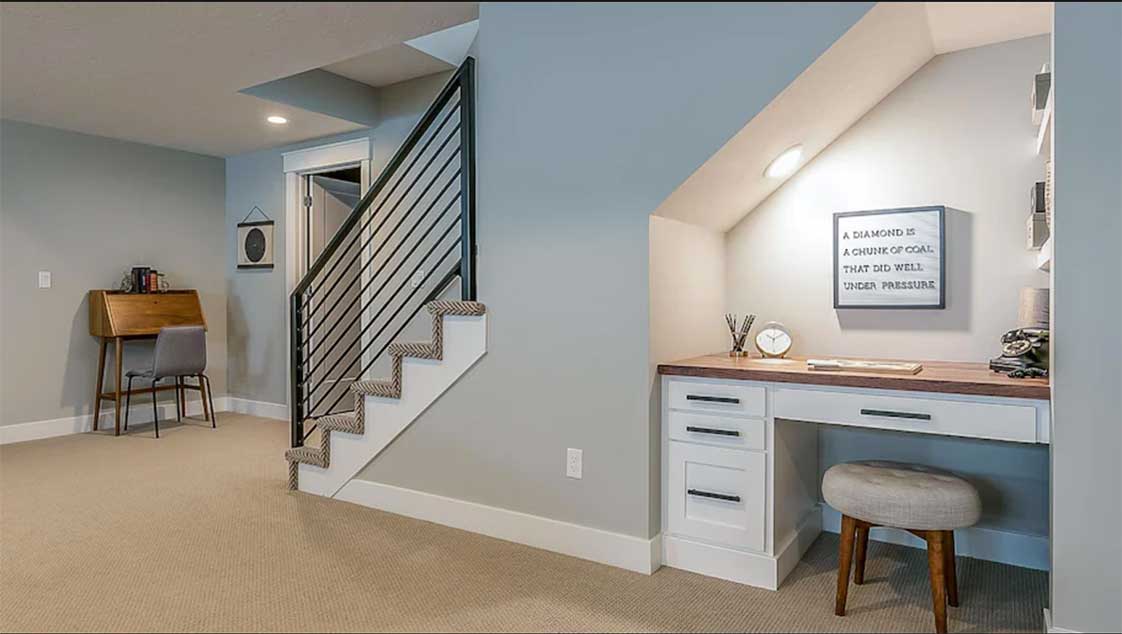Legal basement apartments are a relatively new phenomenon. They are popular among those who want to live in a city center but can’t afford the high prices of other properties.
Some people think that legal basement apartments are a bad idea because they offer less privacy and security than traditional apartments. Others argue that these apartments offer lower rental rates, which makes them a good choice for those who can’t afford expensive housing.
Legal basement apartments have both advantages and disadvantages. On one hand, these apartments provide affordable housing for low-income earners in the city center. On the other hand, they do not offer as much privacy and security as traditional apartment buildings do.
Importance of Permit
In most cases, a basement apartment might be just what you need to earn some extra money and afford your dream property purchase. As you generate more income from your new basement, there is an increased sense of responsibility. To ensure that the construction of your basement meets safety requirements, it is important to do your homework correctly.
The owner of this property must ensure that all obligations related to the basement are met. This includes everything from zoning compliance to living space requirements.
Your home must be up to standard and must conform to all the necessary requirements. If not, it may not be fit for human habitation. Building a basement that conforms to all regulations and is legal would be an essential step in the process – and it might save you money in the long run!
Risk Factors
- Preventing a fire hazard needs to be a priority. Ensuring that you have enough stair exits and working smoke alarms, such as CO2 detectors, will save lives.
- Inappropriate or illegal alterations to structures are dangerous and illegal
- Outdated and overburdened utilities (electrical, plumbing, water, etc.)
- Unwanted Moisture
Here are some questions to ask before you start renting out your apartment or buying a house with a built-in apartment:
- You may want to check with your council for by-laws pertaining to basement apartments.
- Is the safety of this property up to code in terms of electrical safety?
- What about fire safety? Do the flats you are offering have all the important requirements, like fire containment, escape routes and alarms, or electricity cables?
- Do buildings meet the requirements of the building code?
Note- There are certain fundamental criteria that a Brampton legal home must meet:
- At least five years must have passed since the home was built.
- The house’s front can’t be changed extensively without making it look different
- The size of the basement apartment will be smaller than the main house.
- The minimum ceiling height should be 6’5″ and continuous
- A single entrance will require a door having solid wood or metal of at least 1.75 inches in thickness
- The requirements for kitchen cupboard capacity should be at least four cubic feet and the appliances should be in good working order.
- When you’re putting in restrooms in the basement, it’s imperative to have sufficient ventilation.
- You can’t start work until you’ve got permission from the local authority.
- As a landlord, it’s important to ensure the safety of your tenants. That starts with completing an electrical and fire check before you approve the apartment or make it available for rent.
- Additionally, the drywall that separates the basement from anything else must be fire-rated for at least 30 minutes. It should also have a separate exit.
Building a basement and maintaining it requires some serious dedication. In the event of an accident or property damage, you’re the one responsible for fixing it. If this seems risky to you, there are other affordable alternatives.
If your apartment is meant to increase revenue or provide a rental property, then you’ll want to make sure it’s legally sound and ready for whatever comes your way. From the city government to the insurance company, someone will have your back.
Conclusion
Not to mention the added income potential, a basement adds more value to the sale price at the time of sale, and it sells much quicker than any standard property. With a big family in town, this type of space could provide plenty of future-proofing when it comes to accommodation.
As you can see, there are a variety of reasons to consider converting your basement into an additional living area. If you’re interested in exploring the option or have any questions about this, please don’t hesitate to speak with our team today.
Also Read:
How To Set Up a Legal Secondary Unit in Your Basement
Things to Consider When Converting Your Basement into a Rental Apartment

